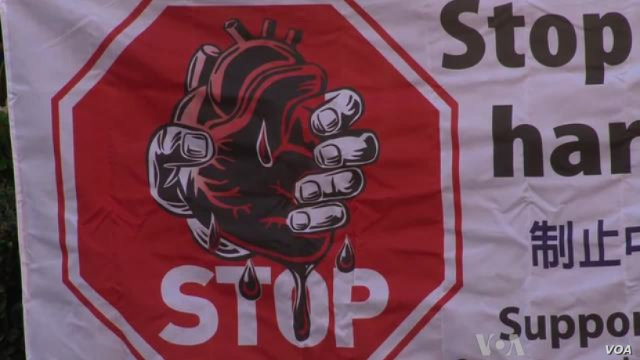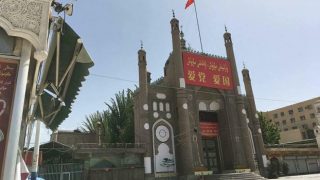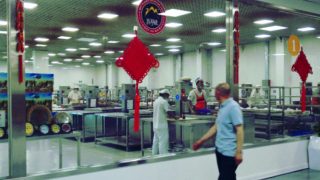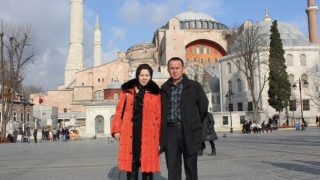Despite international condemnation, organ harvesting from prisoners of conscience in China has never stopped. One can get a kidney of choice in just two weeks
by Li Mingxuan
In an interview with Bitter Winter, Dr. Huige Li, an expert on the plague of forced transplants of human organs in China, pointed out that in the United States, median wait time for a kidney transplant was 3.6 years in 2017. According to the US Government Information on Organ Donation and Transplantation, in 2018, more than 145 million people over the age of 18 were registered as organ donors in the US. China, on the other hand, has only 373,536 registered donors. Despite this difference in the number of people willing to give away their organs, it takes only about a dozen days in China to find an organ donor suitable for a patient. This is truly shocking.

“Want a young kidney? No problem.”
Bitter Winter interviewed a man from northern China, who recounted his experience with transplantation procedures he recently encountered at a hospital in Yantai, a city in the eastern province of Shandong. He agreed to talk only if his real name was not revealed. We will call him Mr. Chen.
One of Mr. Chen’s relatives needed a kidney transplant, so he took him to Yuhuangding Hospital – a large, top-level, 3A grade hospital in Yantai. They chose the hospital because someone recommended it as a place to get organs fast, according to their wishes.
“I didn’t think we could get a kidney so quickly. I just wanted to take a look. To my surprise, we were contacted very soon after arriving at the hospital. It took only about a dozen days to get the needed kidney – from blood tests and physical examination to the surgery,” the man remembered.
The hospital offered a kidney ready for transplantation that had been donated by a family of a deceased person. But Mr. Chen and his relative were not allowed to meet the family.
“The doctor told us that if we were willing to spend a bit more money, we could receive a slightly younger kidney. He ensured us that the donor would be healthy and disease-free, telling us not to worry,” Mr. Chen said. “Of course, we wanted to get a younger kidney.”
Almost immediately, the doctor notified Mr. Chen and his relative that a young man in his twenties just died in a car accident, and his family was willing to donate both of his kidneys. “We didn’t think we could get a young kidney so soon. We thought it was a coincidence,” Mr. Chen remembered his surprise at hearing the news.
Was it a coincidence?
The CCP has continuously repeated that since January 1, 2015, China had stopped entirely using the organs of prisoners sentenced to death as the source of transplant organs, claiming that voluntary organ donation will become the sole channel for organ transplantation. And yet, Yuhuangding Hospital was able to provide a kidney in such a short time, and confidently assured the patient’s family that the donor was healthy. This and numerous other reported incidences of organs provided to patients on demand raise questions about the source of transplanted organs.
In 2017, the World Organization to Investigate the Persecution of Falun Gong released a report, proving that the crime of live organ harvesting against members of this group was still ongoing in China. The report provides recordings of 104 phone conversations with surgeons, nurses, organ transplant department heads, and hospital presidents from nearly 100 hospitals in most provinces of China. Yantai Yuhuangding Hospital is among them, where kidney transplant volume is as large as 300 cases per year.
In a recorded conversation, Mr. Wang, a coordinator for kidney transplant operations at the hospital, clearly stated that the source of the organs is not the Red Cross. “We have ways and channels,” he said. The hospital’s kidney transplant doctor, Shan Zhenfei, boasted, “In general, the wait time here is very short. We have a lot [of patients] here. Some patients from other provinces are all living in our hospital here. I can only tell you that this year is better than last year, [in terms of the transplant volume].”
These investigative results are very similar to the situation revealed by Mr. Chen, who said that there were very many people having a kidney transplant at the time he was there. “If you go there, you will receive a kidney after a short wait,” he said. But the man doesn’t know where these kidneys come from.
The Independent People’s Tribunal into Forced Organ Harvesting from Prisoners of Conscience in China, delivered its verdict in London in June, finding the Chinese authorities complicit in the mutilation of innocent human beings for their organs. The Tribunal has collected credible evidence to make the final conclusion that forced organ harvesting had been committed for years throughout China on a significant scale. The most important findings by the Tribunal were indicated as: extraordinarily short waiting times for organs; the number of transplant operations performed, which far outnumbered the government and hospital statistics for voluntary donations; and a “massive infrastructure development of facilities and medical personnel for organ transplant operations,” even before the voluntary donor scheme in China was launched in 2015.
Other religious and ethnic groups become a source for organs
The London Tribunal has also concluded that the comprehensive DNA collection since 2017 of Uyghurs in Xinjiang has created an ominous pool of potential donors in the future.
Members of The Church of Almighty God (CAG) – the single most persecuted religious group in China – are also victims of the CCP’s inhumane practice of forced organ harvesting. Tortured to Death: The Persecution of The Church of Almighty God in China, a book published in 2018 by Human Rights Without Frontiers, an NGO based in Brussels, Belgium, presents examples of organ harvesting from CAG members.
Ms. Zhang Ruixia (1961-2014) was tortured to death in Linzhou, a city in the central province of Henan. Relatives who saw her body before cremation testified that “her abdomen was dented, and there was a long sewed up scar on it,” usually a tell-tale sign that her internal organs had been removed.
Ms. Li Suansuan (1966-2013, known under the alias of Li Aiping) died in custody at the Shengli Police Station in Turpan city, Xinjiang, allegedly of a “heart attack.” Her younger brother testified that her “body was covered with purple bruises, with a long-sutured cut extending from the neck to the stomach, the brain, heart, liver, and lungs were removed before the cut was stitched up.”
Source: Bitter Winter /Li Mingxuan



